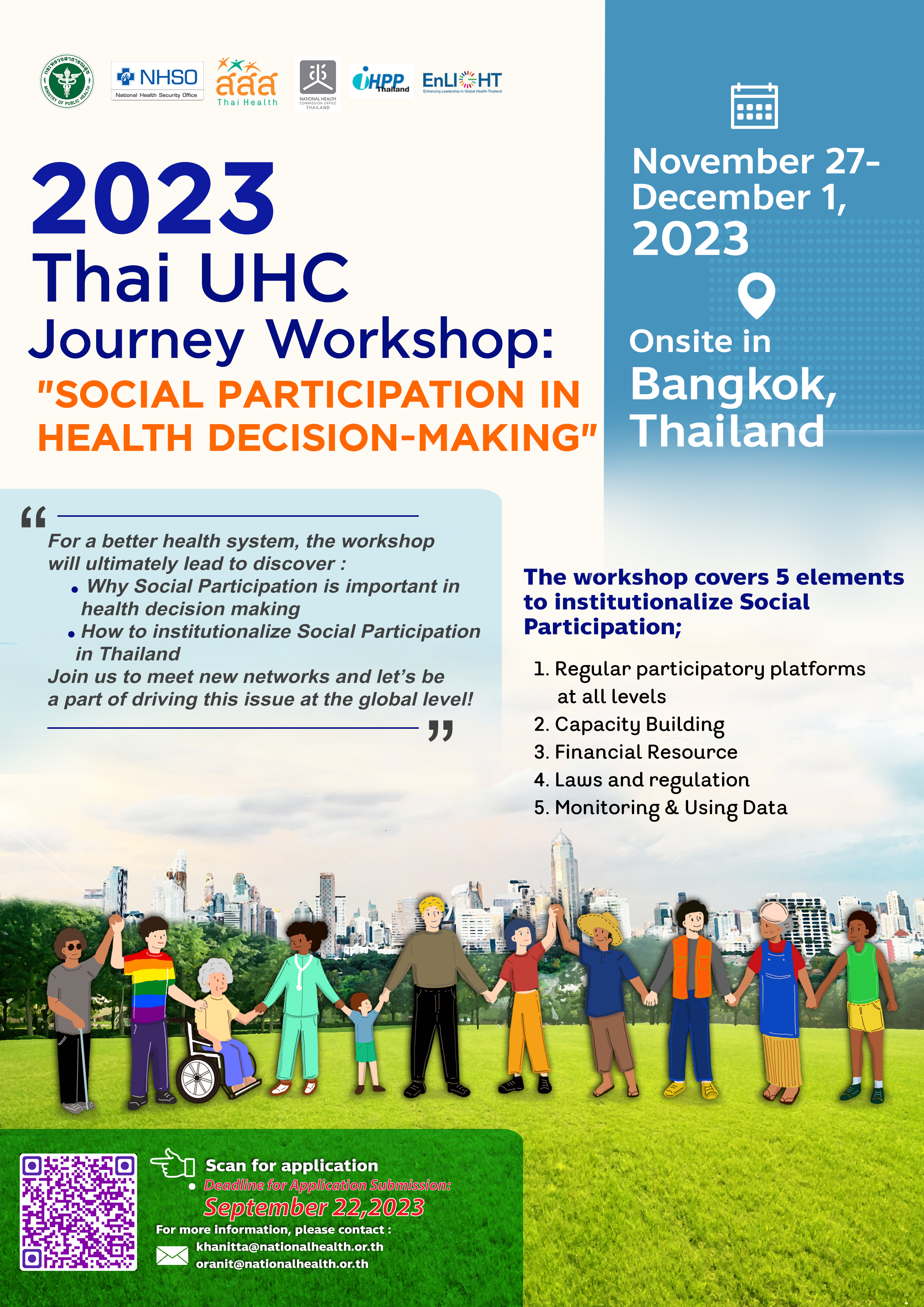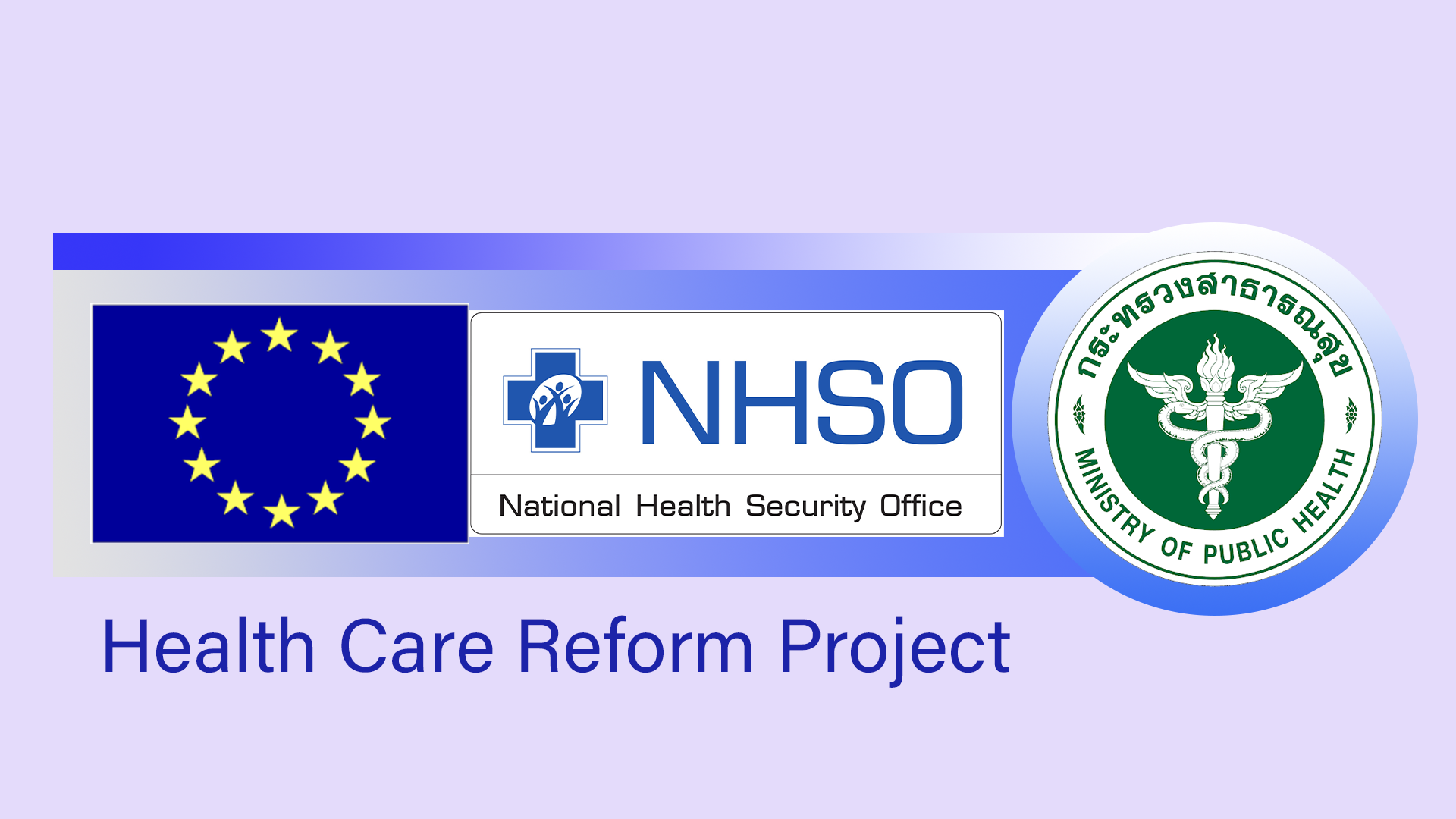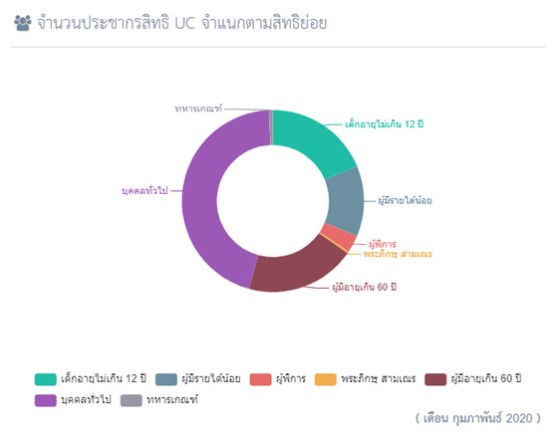Antidotes from Thai National Antidote Project provided to Malaysia emergency case
Thailand shipped antidotes to Malaysia to save the life of a worker poisoned by heavy metal---a mission under the Thai national antidote program that secures patients' access to orphan drugs.
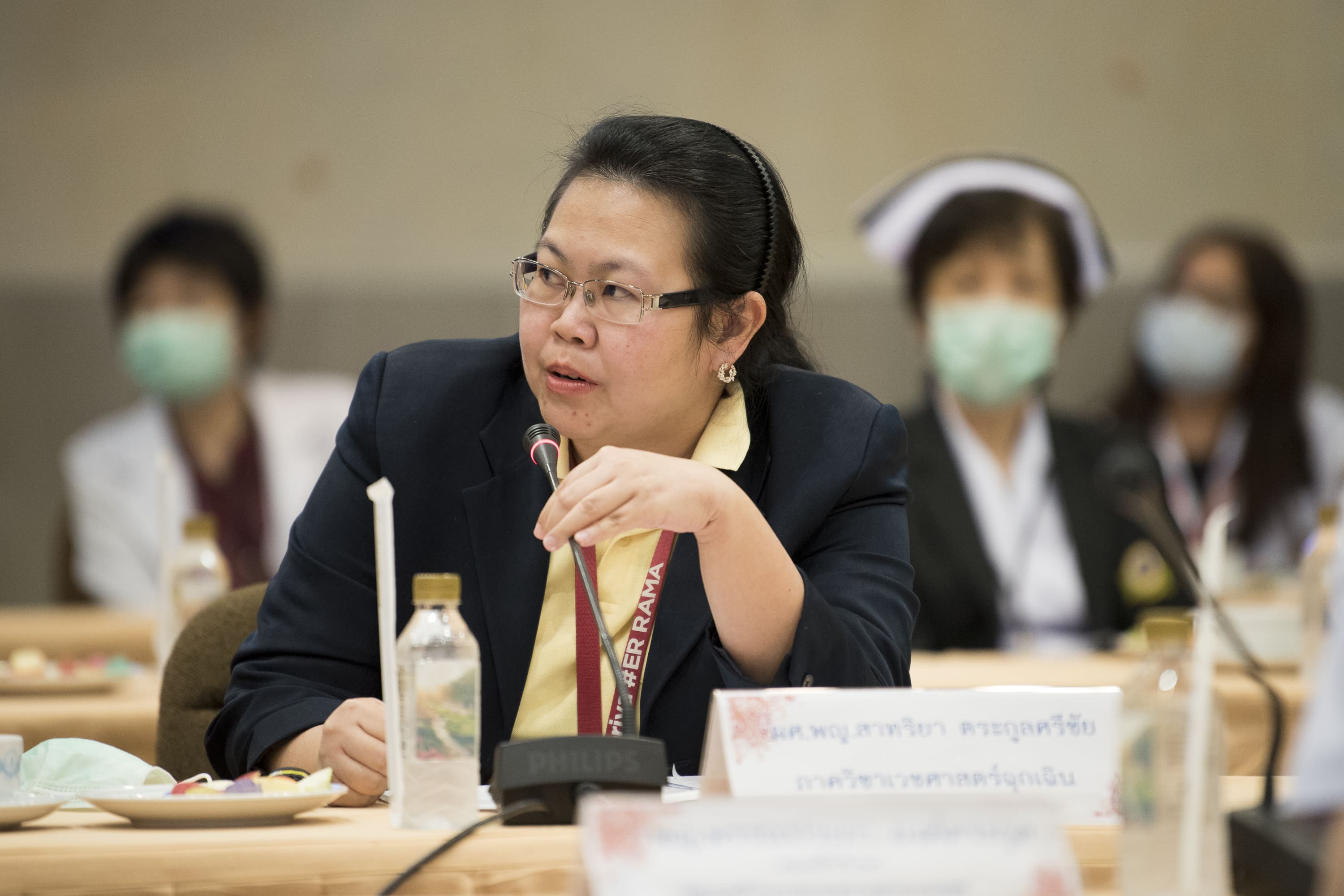
Dr Satariya Trakulsrichai from Ramathibodi Poison Center, Faculty of Medicine Ramathibodi Hospital of Mahidol University, said that a physician team in Malaysia had contacted her unit on 17 July.
They reported a case of a worker poisoned by nickel while working in a chromium factory of Malacca city. He required 40 vials of calcium disodium versenate (CaNa2EDTA), a chelating agent that is used for treating severe heavy metal poisoning. It's an orphan drug that produced and imported by very few pharmaceutical companies.
Learning about the case, said Dr Satariya, the staff of Ramathibodi Poison Center discussed with the National Health Security Office (NHSO) and the Government Pharmaceutical Organization (GPO) about the medical stockpile and shipping method. The drug was eventually reached Malaysia on 20 July.
Ramathibodi Poison Center is one of the organizations that join the Thai National Antidote Project (TNAP), set up in 2010 to secure necessary antidotes and antivenoms and allow patients to access them appropriately and timely.
Partners of the project include the NHSO which has provided financial and technical support, and the GPO which procures orphan drugs according to the list of TNAP.
TNAP is a result of a lesson learned from the 2006 incident in Nan, a province in northern Thailand, where more than a hundred people became severely sick after eating bamboo shoots contaminated by clostridium botulinum bacteria.
At least 40 people must use ventilators because the disease caused breathing problems.
To cure them, the Public Health Ministry took six days to seek antidotes from international pharmaceutical companies. The incident prompted government agencies to develop TNAP to prevent a shortage of orphan drugs.
The success of TNAP was recognized by the World Health Organization (WHO), which encouraged Thailand to expand the project to a regional level under iCAPS program, or Initiation for Coordinated Antidotes Procurement in Southeast Asia. Thailand has shipped antidotes to its partner countries since then.
In 2018, Thailand sent botulinum antitoxin to threat three patients in Nigeria. One died, unfortunately. Two were in an intensive care unit when WHO representative in Nigeria notified Thailand about the case.
"TNAP reflects the capacity of Thailand in procuring and securing orphan drugs for both domestic and international patients," said Public Health Minister Anutin Charnvirakul.
"Shipping medicines to our partner countries is an important mission. It shows our effort to provide humanitarian aids while maintaining good relationships with our partner nations."
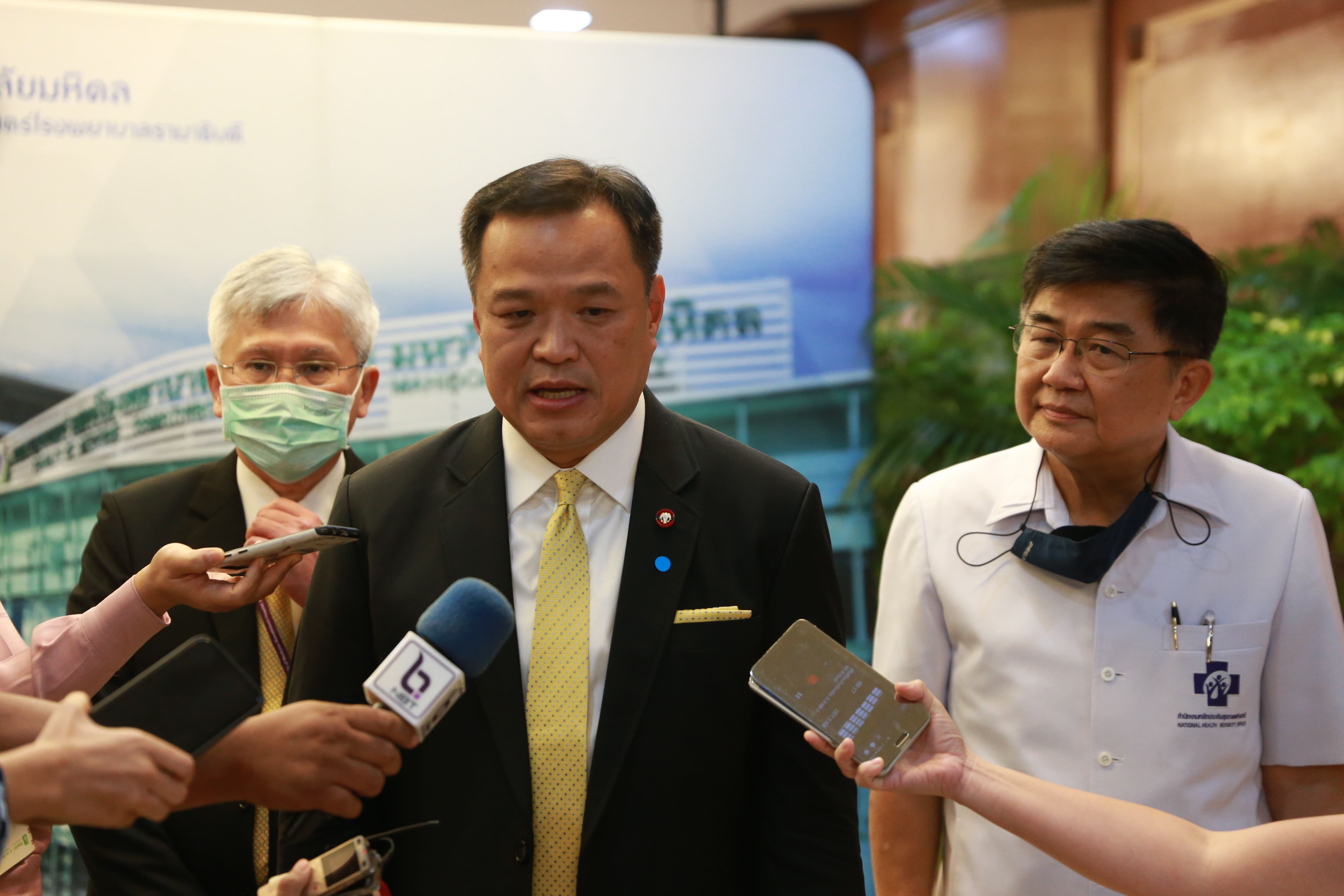

Dr Satariya Trakulsrichai from Ramathibodi Poison Center, Faculty of Medicine Ramathibodi Hospital of Mahidol University, said that a physician team in Malaysia had contacted her unit on 17 July.
They reported a case of a worker poisoned by nickel while working in a chromium factory of Malacca city. He required 40 vials of calcium disodium versenate (CaNa2EDTA), a chelating agent that is used for treating severe heavy metal poisoning. It's an orphan drug that produced and imported by very few pharmaceutical companies.
Learning about the case, said Dr Satariya, the staff of Ramathibodi Poison Center discussed with the National Health Security Office (NHSO) and the Government Pharmaceutical Organization (GPO) about the medical stockpile and shipping method. The drug was eventually reached Malaysia on 20 July.
Ramathibodi Poison Center is one of the organizations that join the Thai National Antidote Project (TNAP), set up in 2010 to secure necessary antidotes and antivenoms and allow patients to access them appropriately and timely.
Partners of the project include the NHSO which has provided financial and technical support, and the GPO which procures orphan drugs according to the list of TNAP.
TNAP is a result of a lesson learned from the 2006 incident in Nan, a province in northern Thailand, where more than a hundred people became severely sick after eating bamboo shoots contaminated by clostridium botulinum bacteria.
At least 40 people must use ventilators because the disease caused breathing problems.
To cure them, the Public Health Ministry took six days to seek antidotes from international pharmaceutical companies. The incident prompted government agencies to develop TNAP to prevent a shortage of orphan drugs.
The success of TNAP was recognized by the World Health Organization (WHO), which encouraged Thailand to expand the project to a regional level under iCAPS program, or Initiation for Coordinated Antidotes Procurement in Southeast Asia. Thailand has shipped antidotes to its partner countries since then.
In 2018, Thailand sent botulinum antitoxin to threat three patients in Nigeria. One died, unfortunately. Two were in an intensive care unit when WHO representative in Nigeria notified Thailand about the case.
"TNAP reflects the capacity of Thailand in procuring and securing orphan drugs for both domestic and international patients," said Public Health Minister Anutin Charnvirakul.
"Shipping medicines to our partner countries is an important mission. It shows our effort to provide humanitarian aids while maintaining good relationships with our partner nations."

IN DEPTH
Antidotes from Thai National Antidote Project provided to Malaysia emergency case
Thailand shipped antidotes to Malaysia to save the life of a worker poisoned by heavy metal---a mission under the Thai national antidote program that secures patients' access to orphan drugs.

Dr Satariya Trakulsrichai from Ramathibodi Poison Center, Faculty of Medicine Ramathibodi Hospital of Mahidol University, said that a physician team in Malaysia had contacted her unit on 17 July.
They reported a case of a worker poisoned by nickel while working in a chromium factory of Malacca city. He required 40 vials of calcium disodium versenate (CaNa2EDTA), a chelating agent that is used for treating severe heavy metal poisoning. It's an orphan drug that produced and imported by very few pharmaceutical companies.
Learning about the case, said Dr Satariya, the staff of Ramathibodi Poison Center discussed with the National Health Security Office (NHSO) and the Government Pharmaceutical Organization (GPO) about the medical stockpile and shipping method. The drug was eventually reached Malaysia on 20 July.
Ramathibodi Poison Center is one of the organizations that join the Thai National Antidote Project (TNAP), set up in 2010 to secure necessary antidotes and antivenoms and allow patients to access them appropriately and timely.
Partners of the project include the NHSO which has provided financial and technical support, and the GPO which procures orphan drugs according to the list of TNAP.
TNAP is a result of a lesson learned from the 2006 incident in Nan, a province in northern Thailand, where more than a hundred people became severely sick after eating bamboo shoots contaminated by clostridium botulinum bacteria.
At least 40 people must use ventilators because the disease caused breathing problems.
To cure them, the Public Health Ministry took six days to seek antidotes from international pharmaceutical companies. The incident prompted government agencies to develop TNAP to prevent a shortage of orphan drugs.
The success of TNAP was recognized by the World Health Organization (WHO), which encouraged Thailand to expand the project to a regional level under iCAPS program, or Initiation for Coordinated Antidotes Procurement in Southeast Asia. Thailand has shipped antidotes to its partner countries since then.
In 2018, Thailand sent botulinum antitoxin to threat three patients in Nigeria. One died, unfortunately. Two were in an intensive care unit when WHO representative in Nigeria notified Thailand about the case.
"TNAP reflects the capacity of Thailand in procuring and securing orphan drugs for both domestic and international patients," said Public Health Minister Anutin Charnvirakul.
"Shipping medicines to our partner countries is an important mission. It shows our effort to provide humanitarian aids while maintaining good relationships with our partner nations."


Dr Satariya Trakulsrichai from Ramathibodi Poison Center, Faculty of Medicine Ramathibodi Hospital of Mahidol University, said that a physician team in Malaysia had contacted her unit on 17 July.
They reported a case of a worker poisoned by nickel while working in a chromium factory of Malacca city. He required 40 vials of calcium disodium versenate (CaNa2EDTA), a chelating agent that is used for treating severe heavy metal poisoning. It's an orphan drug that produced and imported by very few pharmaceutical companies.
Learning about the case, said Dr Satariya, the staff of Ramathibodi Poison Center discussed with the National Health Security Office (NHSO) and the Government Pharmaceutical Organization (GPO) about the medical stockpile and shipping method. The drug was eventually reached Malaysia on 20 July.
Ramathibodi Poison Center is one of the organizations that join the Thai National Antidote Project (TNAP), set up in 2010 to secure necessary antidotes and antivenoms and allow patients to access them appropriately and timely.
Partners of the project include the NHSO which has provided financial and technical support, and the GPO which procures orphan drugs according to the list of TNAP.
TNAP is a result of a lesson learned from the 2006 incident in Nan, a province in northern Thailand, where more than a hundred people became severely sick after eating bamboo shoots contaminated by clostridium botulinum bacteria.
At least 40 people must use ventilators because the disease caused breathing problems.
To cure them, the Public Health Ministry took six days to seek antidotes from international pharmaceutical companies. The incident prompted government agencies to develop TNAP to prevent a shortage of orphan drugs.
The success of TNAP was recognized by the World Health Organization (WHO), which encouraged Thailand to expand the project to a regional level under iCAPS program, or Initiation for Coordinated Antidotes Procurement in Southeast Asia. Thailand has shipped antidotes to its partner countries since then.
In 2018, Thailand sent botulinum antitoxin to threat three patients in Nigeria. One died, unfortunately. Two were in an intensive care unit when WHO representative in Nigeria notified Thailand about the case.
"TNAP reflects the capacity of Thailand in procuring and securing orphan drugs for both domestic and international patients," said Public Health Minister Anutin Charnvirakul.
"Shipping medicines to our partner countries is an important mission. It shows our effort to provide humanitarian aids while maintaining good relationships with our partner nations."

Events
Antidotes from Thai National Antidote Project provided to Malaysia emergency case
Thailand shipped antidotes to Malaysia to save the life of a worker poisoned by heavy metal---a mission under the Thai national antidote program that secures patients' access to orphan drugs.

Dr Satariya Trakulsrichai from Ramathibodi Poison Center, Faculty of Medicine Ramathibodi Hospital of Mahidol University, said that a physician team in Malaysia had contacted her unit on 17 July.
They reported a case of a worker poisoned by nickel while working in a chromium factory of Malacca city. He required 40 vials of calcium disodium versenate (CaNa2EDTA), a chelating agent that is used for treating severe heavy metal poisoning. It's an orphan drug that produced and imported by very few pharmaceutical companies.
Learning about the case, said Dr Satariya, the staff of Ramathibodi Poison Center discussed with the National Health Security Office (NHSO) and the Government Pharmaceutical Organization (GPO) about the medical stockpile and shipping method. The drug was eventually reached Malaysia on 20 July.
Ramathibodi Poison Center is one of the organizations that join the Thai National Antidote Project (TNAP), set up in 2010 to secure necessary antidotes and antivenoms and allow patients to access them appropriately and timely.
Partners of the project include the NHSO which has provided financial and technical support, and the GPO which procures orphan drugs according to the list of TNAP.
TNAP is a result of a lesson learned from the 2006 incident in Nan, a province in northern Thailand, where more than a hundred people became severely sick after eating bamboo shoots contaminated by clostridium botulinum bacteria.
At least 40 people must use ventilators because the disease caused breathing problems.
To cure them, the Public Health Ministry took six days to seek antidotes from international pharmaceutical companies. The incident prompted government agencies to develop TNAP to prevent a shortage of orphan drugs.
The success of TNAP was recognized by the World Health Organization (WHO), which encouraged Thailand to expand the project to a regional level under iCAPS program, or Initiation for Coordinated Antidotes Procurement in Southeast Asia. Thailand has shipped antidotes to its partner countries since then.
In 2018, Thailand sent botulinum antitoxin to threat three patients in Nigeria. One died, unfortunately. Two were in an intensive care unit when WHO representative in Nigeria notified Thailand about the case.
"TNAP reflects the capacity of Thailand in procuring and securing orphan drugs for both domestic and international patients," said Public Health Minister Anutin Charnvirakul.
"Shipping medicines to our partner countries is an important mission. It shows our effort to provide humanitarian aids while maintaining good relationships with our partner nations."


Dr Satariya Trakulsrichai from Ramathibodi Poison Center, Faculty of Medicine Ramathibodi Hospital of Mahidol University, said that a physician team in Malaysia had contacted her unit on 17 July.
They reported a case of a worker poisoned by nickel while working in a chromium factory of Malacca city. He required 40 vials of calcium disodium versenate (CaNa2EDTA), a chelating agent that is used for treating severe heavy metal poisoning. It's an orphan drug that produced and imported by very few pharmaceutical companies.
Learning about the case, said Dr Satariya, the staff of Ramathibodi Poison Center discussed with the National Health Security Office (NHSO) and the Government Pharmaceutical Organization (GPO) about the medical stockpile and shipping method. The drug was eventually reached Malaysia on 20 July.
Ramathibodi Poison Center is one of the organizations that join the Thai National Antidote Project (TNAP), set up in 2010 to secure necessary antidotes and antivenoms and allow patients to access them appropriately and timely.
Partners of the project include the NHSO which has provided financial and technical support, and the GPO which procures orphan drugs according to the list of TNAP.
TNAP is a result of a lesson learned from the 2006 incident in Nan, a province in northern Thailand, where more than a hundred people became severely sick after eating bamboo shoots contaminated by clostridium botulinum bacteria.
At least 40 people must use ventilators because the disease caused breathing problems.
To cure them, the Public Health Ministry took six days to seek antidotes from international pharmaceutical companies. The incident prompted government agencies to develop TNAP to prevent a shortage of orphan drugs.
The success of TNAP was recognized by the World Health Organization (WHO), which encouraged Thailand to expand the project to a regional level under iCAPS program, or Initiation for Coordinated Antidotes Procurement in Southeast Asia. Thailand has shipped antidotes to its partner countries since then.
In 2018, Thailand sent botulinum antitoxin to threat three patients in Nigeria. One died, unfortunately. Two were in an intensive care unit when WHO representative in Nigeria notified Thailand about the case.
"TNAP reflects the capacity of Thailand in procuring and securing orphan drugs for both domestic and international patients," said Public Health Minister Anutin Charnvirakul.
"Shipping medicines to our partner countries is an important mission. It shows our effort to provide humanitarian aids while maintaining good relationships with our partner nations."

RESOURCE CENTER
SECRETARY-GENERAL
Antidotes from Thai National Antidote Project provided to Malaysia emergency case
Thailand shipped antidotes to Malaysia to save the life of a worker poisoned by heavy metal---a mission under the Thai national antidote program that secures patients' access to orphan drugs.

Dr Satariya Trakulsrichai from Ramathibodi Poison Center, Faculty of Medicine Ramathibodi Hospital of Mahidol University, said that a physician team in Malaysia had contacted her unit on 17 July.
They reported a case of a worker poisoned by nickel while working in a chromium factory of Malacca city. He required 40 vials of calcium disodium versenate (CaNa2EDTA), a chelating agent that is used for treating severe heavy metal poisoning. It's an orphan drug that produced and imported by very few pharmaceutical companies.
Learning about the case, said Dr Satariya, the staff of Ramathibodi Poison Center discussed with the National Health Security Office (NHSO) and the Government Pharmaceutical Organization (GPO) about the medical stockpile and shipping method. The drug was eventually reached Malaysia on 20 July.
Ramathibodi Poison Center is one of the organizations that join the Thai National Antidote Project (TNAP), set up in 2010 to secure necessary antidotes and antivenoms and allow patients to access them appropriately and timely.
Partners of the project include the NHSO which has provided financial and technical support, and the GPO which procures orphan drugs according to the list of TNAP.
TNAP is a result of a lesson learned from the 2006 incident in Nan, a province in northern Thailand, where more than a hundred people became severely sick after eating bamboo shoots contaminated by clostridium botulinum bacteria.
At least 40 people must use ventilators because the disease caused breathing problems.
To cure them, the Public Health Ministry took six days to seek antidotes from international pharmaceutical companies. The incident prompted government agencies to develop TNAP to prevent a shortage of orphan drugs.
The success of TNAP was recognized by the World Health Organization (WHO), which encouraged Thailand to expand the project to a regional level under iCAPS program, or Initiation for Coordinated Antidotes Procurement in Southeast Asia. Thailand has shipped antidotes to its partner countries since then.
In 2018, Thailand sent botulinum antitoxin to threat three patients in Nigeria. One died, unfortunately. Two were in an intensive care unit when WHO representative in Nigeria notified Thailand about the case.
"TNAP reflects the capacity of Thailand in procuring and securing orphan drugs for both domestic and international patients," said Public Health Minister Anutin Charnvirakul.
"Shipping medicines to our partner countries is an important mission. It shows our effort to provide humanitarian aids while maintaining good relationships with our partner nations."


Dr Satariya Trakulsrichai from Ramathibodi Poison Center, Faculty of Medicine Ramathibodi Hospital of Mahidol University, said that a physician team in Malaysia had contacted her unit on 17 July.
They reported a case of a worker poisoned by nickel while working in a chromium factory of Malacca city. He required 40 vials of calcium disodium versenate (CaNa2EDTA), a chelating agent that is used for treating severe heavy metal poisoning. It's an orphan drug that produced and imported by very few pharmaceutical companies.
Learning about the case, said Dr Satariya, the staff of Ramathibodi Poison Center discussed with the National Health Security Office (NHSO) and the Government Pharmaceutical Organization (GPO) about the medical stockpile and shipping method. The drug was eventually reached Malaysia on 20 July.
Ramathibodi Poison Center is one of the organizations that join the Thai National Antidote Project (TNAP), set up in 2010 to secure necessary antidotes and antivenoms and allow patients to access them appropriately and timely.
Partners of the project include the NHSO which has provided financial and technical support, and the GPO which procures orphan drugs according to the list of TNAP.
TNAP is a result of a lesson learned from the 2006 incident in Nan, a province in northern Thailand, where more than a hundred people became severely sick after eating bamboo shoots contaminated by clostridium botulinum bacteria.
At least 40 people must use ventilators because the disease caused breathing problems.
To cure them, the Public Health Ministry took six days to seek antidotes from international pharmaceutical companies. The incident prompted government agencies to develop TNAP to prevent a shortage of orphan drugs.
The success of TNAP was recognized by the World Health Organization (WHO), which encouraged Thailand to expand the project to a regional level under iCAPS program, or Initiation for Coordinated Antidotes Procurement in Southeast Asia. Thailand has shipped antidotes to its partner countries since then.
In 2018, Thailand sent botulinum antitoxin to threat three patients in Nigeria. One died, unfortunately. Two were in an intensive care unit when WHO representative in Nigeria notified Thailand about the case.
"TNAP reflects the capacity of Thailand in procuring and securing orphan drugs for both domestic and international patients," said Public Health Minister Anutin Charnvirakul.
"Shipping medicines to our partner countries is an important mission. It shows our effort to provide humanitarian aids while maintaining good relationships with our partner nations."

VIDEOS
Thailand's UHC Journey
UHC Public relations
